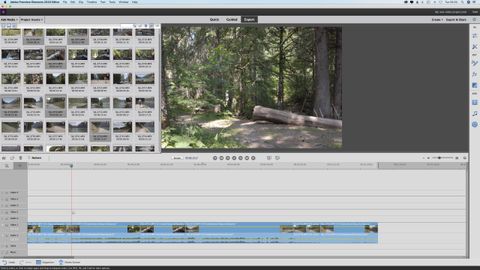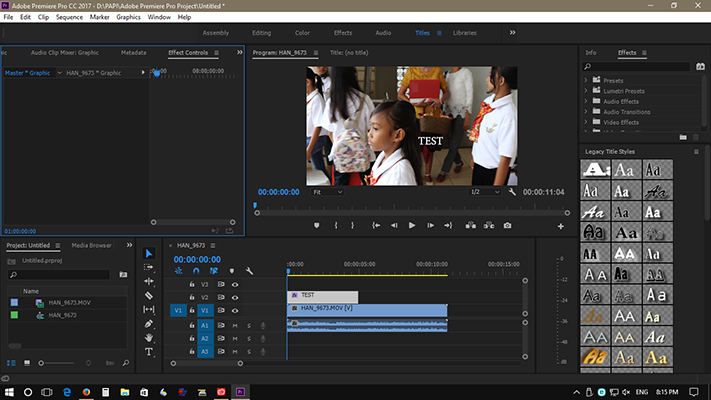
The ‘Shot/ Reverse Shot’ alternates between two characters depending on who’s talking, with character in the first frame always looking left and the other character always looking right. If a clip doesn’t fit, you risk breaking the flow of your film, causing viewers to become detached from the story you are trying to convey.Īn example of continuity editing could be: A woman walks to a door (2 seconds) |CUT| The woman turns the door handle (1.5 seconds) |CUT| The woman is on the other side of the door walking through (2 seconds).Īnother take on continuity editing is the Shot / Reverse Shot, used when editing together an interview or conversation between two people. The key to continuity editing is choosing clips that will make sense and look ‘right’ when stitched together. Continuity EditingĬontinuity editing, very simply, is the process of putting together a sequence of shots so that they infer a progression of events, without having to include the entirety of an action. We can't cover everything here but will give an overview of two super useful concepts that will put you on the right track to making awesome videos: Continuity editing and cutaways. Now that you're a bit more clued up on the basics of cutting and rearranging your clips, it's time to look at some of the key concepts that are typically used when editing films. Paste (Ctrl / Cmd V) – pastes the selected clipĮditing Your Video - Concepts and Techniques.Copy (Ctrl / Cmd C) – copies the selected clip.Undo (Ctrl / Cmd Z) – as with most programmes, this undoes the last action you performed.

Stop (K) – used to stop the playhead whilst fast forwarding or rewinding.The longer the keys are held down, the faster the playhead will move. Render (Return/ Enter key) – Renders the sequence in the timeline.įast Forward / Rewind (L / J) – Used to move the playhead forwards/ backwards along the timeline.Pressing the Alt key with the zoom tool active will allow you to zoom out on the timeline. The Zoom Tool (Z) – used to scale your timeline to view precise points, allowing you to fine tune edits.Generally the hand tool is only useful for complicated, large scale productions. The Hand Tool (H) – a way of moving around the timeline.

The Ripple tool (B) – used to shift the selected track left and right on the timeline to fine-tune your edits.Play / Pause (Space Bar) – used to play or pause your clip.The Mouse tool (V) – general purpose tool used for navigating your workspace and rearranging clips.The Razor tool (C) – Used to cut your clips.If at any point you forget which tools are assigned to a shortcut, click Adobe Premiere CC in the menu bar at the top and then click Keyboard Shortcuts. It’s good to note that using keyboard shortcuts will help to speed up your editing process. Most of these tools can be accessed either via the toolbar in Premiere Pro, or by using keyboard shortcuts, which we’ve included in brackets. Here we’ll go over the basic tools you’ll need to be familiar with in order to edit your film. You'll notice that this changes the frame that's currently being displayed. Try moving the playhead by dragging the blue tab at the top of the line. This indicates which part of your video/ audio is currently being looked at in the top-right preview window. The thin vertical line is your playhead, also known as a scrubber.You can add more later on if you need to.
#Adobe video editing software pro#
To start off, Premiere Pro gives you 3 layers for your video and 3 for your audio, with the video always appearing at the top and audio beneath.


It's recommended that you familiarise yourself with each workspace, however, as it can really help to speed up your editing process.īy default, Premiere will open a new project in the Assembly workspace, which is optimised for importing and assembling your footage. It's not always necessary to switch between workspaces to make various edits, for example most of the functions relating to assembly, video effects, audio optimisation and colour grading can be accessed via the Editing workspace by simply selecting the relevant windows.


 0 kommentar(er)
0 kommentar(er)
